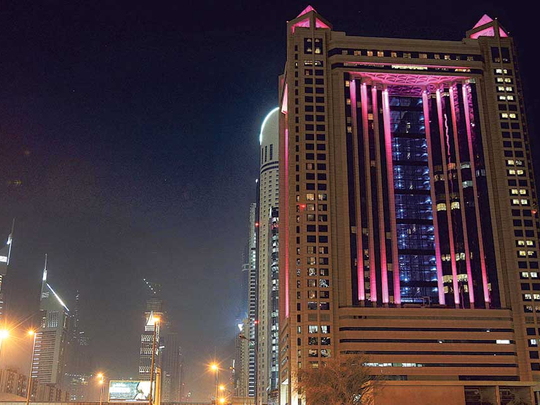
Dubai: French hotel chain Accor Hotels has agreed to acquire FRHI Holdings, the owner of the luxury Fairmont, Raffles and Swissotel hotel brands in a $2.9 billion (Dh10.6 billion) cash and share deal.
Europe’s largest hotel operator will pay $840 million in cash for the acquisition and 46.7 million in new shares, it said in a statement on Wednesday.
Toronto-based FRHI is jointly owned by sovereign wealth fund Qatar Investment Authority (QIA), Kingdom Holding, the investment firm of billionaire Prince Al Waleed Bin Talal, and Oxford Properties.
The share issue will leave QIA and Kingdom Holding with a 10.5 per cent and 5.8 per cent stake in Accor, respectively.
Two QIA representatives will be appointed to Accor’s board of directors and one from Kingdom Holding. The deal will likely be approved at an Accor shareholders’ meeting, which will be held in the second half of 2016, according to a Reuters report.
The acquisition of FRHI’s 155 hotels and resorts in 34 countries will allow the Paris-based company, which operates 3,800 properties in 92 countries, to be a global leader in the luxury hotel segment, said Sébastien Bazin, Accor’s chairman and chief executive, in the statement.
“It offers us robust and global leadership in luxury hotels, a key segment in terms of geographic reach, growth potential and profitability,” he said.
The deal also strengthens the company’s workforce.
Properties
Accor operates the luxury and upscale Sofitel and Pullman hotels, as well as the midscale and budget Novotel and Ibis properties. FRHI’s portfolio includes The Savoy in London, the Fairmont Peace Hotel in Shanghai and New York’s The Plaza Hotel.
FRHI has 17 properties in the Middle East and Africa, while Accor has 153, according to its website. Combined, Accor’s and FRHI’s room supply is about 10 per cent of the total hotel room supply in Dubai, according to Chiheb Ben Mahmoud, executive vice president — head of hotels and hospitality for the Middle East and Africa at real estate consultancy JLL.
Bazin said that Accor is positioning itself “as a key player in the current industry consolidation process”.
The Accor-FRHI deal is the latest in the hotel industry this year.
Marriott International said last month that it will buy Starwood Hotels and Resorts Worldwide for $12.2 billion, creating the world’s biggest hotel chain. The combined company will have 5,500 hotels with 1.1 million rooms globally.
Last year, Marriott bought South African hotel chain Protea Hospitality Group for $200 million.
“After the announced (yet to be completed) acquisition of Starwood Hotels & Resorts by Marriott, the Accor — FRHI transactions hints even further to the structural changes that are taking place in the hospitality industry landscape,” Ben Mahmoud said.
Acquisitions allow hotel chains to better compete with companies like Airbnb, a home-sharing firm that is undercutting prices charged by hotels.
“The recent transactions should also be seen in the context of the growth of companies such as Airbnb and more generally to the new and disruptive technologies. The combined global presence of the new merged companies should allow them to develop guest centric technologies that other companies might not be able to carry out,” he said.
Major deals
While there is an appetite for investments in the UAE hotel industry, few hotels are offered for sale, with two major deals in the last two years.
Movenpick Hotel and Apartments Bur Dubai was sold in December last year by Kingdom Hotel Investments, a subsidiary of Kingdom Holding, to an unnamed investment firm in the UAE for $95 million (Dh349 million).
In June 2014, Movenpick Hotel Jumeirah Beach was acquired by Bank Muscat GCC Property Income Fund, which is managed by the asset management division of Bank Muscat.
“At a time where travel is increasing, and where travellers needs are evolving and the travel context is facing always new threats, the hospitality industry is expected today to meet ever increasing and evolving challenges. Taking this into consideration, it is expected that we see further merger activity and consolidation in the hospitality industry in the future, albeit at a smaller scale,” Ben Mahmoud said.
Accor and FRHI did not respond to a request for comment by deadline.












